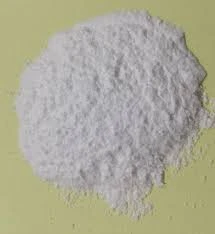- Afrikaans
- Albanian
- Amharic
- Arabic
- Armenian
- Azerbaijani
- Basque
- Belarusian
- Bengali
- Bosnian
- Bulgarian
- Catalan
- Cebuano
- Corsican
- Croatian
- Czech
- Danish
- Dutch
- English
- Esperanto
- Estonian
- Finnish
- French
- Frisian
- Galician
- Georgian
- German
- Greek
- Gujarati
- Haitian Creole
- hausa
- hawaiian
- Hebrew
- Hindi
- Miao
- Hungarian
- Icelandic
- igbo
- Indonesian
- irish
- Italian
- Japanese
- Javanese
- Kannada
- kazakh
- Khmer
- Rwandese
- Korean
- Kurdish
- Kyrgyz
- Lao
- Latin
- Latvian
- Lithuanian
- Luxembourgish
- Macedonian
- Malgashi
- Malay
- Malayalam
- Maltese
- Maori
- Marathi
- Mongolian
- Myanmar
- Nepali
- Norwegian
- Norwegian
- Occitan
- Pashto
- Persian
- Polish
- Portuguese
- Punjabi
- Romanian
- Russian
- Samoan
- Scottish Gaelic
- Serbian
- Sesotho
- Shona
- Sindhi
- Sinhala
- Slovak
- Slovenian
- Somali
- Spanish
- Sundanese
- Swahili
- Swedish
- Tagalog
- Tajik
- Tamil
- Tatar
- Telugu
- Thai
- Turkish
- Turkmen
- Ukrainian
- Urdu
- Uighur
- Uzbek
- Vietnamese
- Welsh
- Bantu
- Yiddish
- Yoruba
- Zulu
Nov . 11, 2024 17:47 Back to list
nutrition for horses
Nutrition for Horses A Comprehensive Guide
Proper nutrition is vital for maintaining the health and performance of horses. Whether for leisure or competition, understanding the dietary needs of these majestic animals is crucial. This article will delve into the essential components of a horse's diet, helping horse owners promote optimal health and well-being.
The Basics of Equine Nutrition
Horses are classified as herbivores, primarily relying on grasses and forages. Their digestive systems are specifically designed for processing high-fiber diets, with a unique structure that includes a large cecum where fermentation occurs. This makes it essential to provide horses with adequate fiber to promote proper digestion and nutrient absorption.
Nutritional Components
1. Forages The cornerstone of a horse's diet should be high-quality forages, including hay and pasture. Forages provide essential fiber, support gut health, and are a primary source of energy. When selecting hay, consider factors such as maturity, cut time, and type (e.g., Timothy, alfalfa). Alfalfa is often richer in protein and calcium, making it suitable for young, growing, or lactating horses.
2. Concentrates While forages are crucial, some horses require additional concentrates for extra energy and nutrients. Concentrates can include grains like oats, corn, or barley, along with commercial feeds formulated to meet specific nutritional needs. It's important to introduce concentrates gradually to prevent digestive upset.
3. Vitamins and Minerals Horses require various vitamins and minerals to support their overall health. Key vitamins include A, D, E, and K, while minerals like calcium, phosphorus, magnesium, and selenium are vital for bone health and metabolic functions. Commercial feeds often contain added vitamins and minerals; however, occasional testing of forage quality can help determine if additional supplementation is needed.
4. Water Water is often overlooked but is perhaps the most critical component of a horse's diet. Horses can consume anywhere from 5 to 15 gallons of water daily, depending on their size, activity level, and environmental conditions. Access to clean, fresh water is essential to prevent dehydration and support overall metabolic functions.
Determining Nutritional Needs
nutrition for horses

Every horse is unique, and their nutritional needs can vary based on factors such as age, weight, activity level, and health status. Horses in intense training or competing may require a higher caloric intake, while sedentary horses might need a more restrictive diet to prevent obesity.
Utilizing body condition scoring can help horse owners assess their horse’s body fat and adjust feeding practices accordingly. Ideally, a horse should have a body condition score between 4 and 6 on a scale of 1 to 9, with 1 being extremely thin and 9 being obese.
Feeding Practices
Establishing consistent feeding practices can vastly improve a horse's digestive health. Horses are naturally grazing animals and thrive on a routine schedule. Ideally, they should be fed small, frequent meals throughout the day rather than one or two large feedings.
Additionally, providing a slow feeder or hay net can encourage natural grazing behaviors, which can reduce boredom and prevent digestive issues like colic or gastric ulcers.
Common Nutritional Deficiencies
Certain deficiencies can pose serious health risks for horses. For instance, a selenium deficiency can lead to muscle weakness, while a lack of vitamin E impacts immune function. Regular veterinary check-ups, including blood tests, can help identify any potential deficiencies and guide dietary adjustments accordingly.
Conclusion
Understanding and implementing proper nutrition for horses is fundamental for their health and performance. By focusing on high-quality forages, balanced concentrates, and adequate water intake, horse owners can ensure their animals remain healthy and lively. Tailoring the diet based on individual needs and consistently monitoring body condition will further enhance the overall well-being of these remarkable animals. Investing in proper nutrition is an investment in the horse’s future, promoting longevity and a better quality of life.
-
Guide to Oxytetracycline Injection
NewsMar.27,2025
-
Guide to Colistin Sulphate
NewsMar.27,2025
-
Gentamicin Sulfate: Uses, Price, And Key Information
NewsMar.27,2025
-
Enrofloxacin Injection: Uses, Price, And Supplier Information
NewsMar.27,2025
-
Dexamethasone Sodium Phosphate Injection: Uses, Price, And Key Information
NewsMar.27,2025
-
Albendazole Tablet: Uses, Dosage, Cost, And Key Information
NewsMar.27,2025













